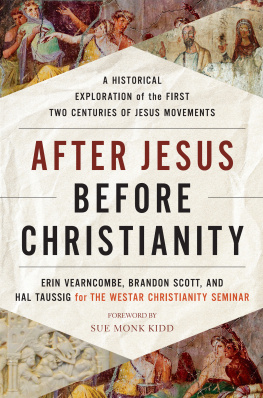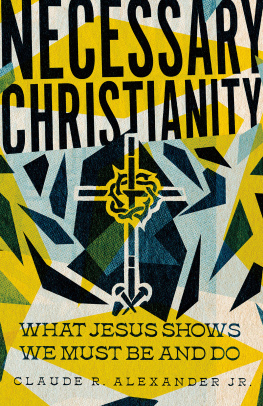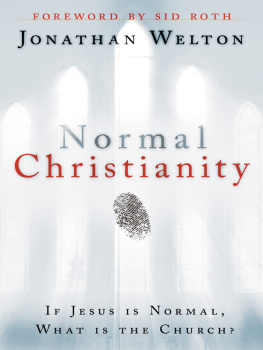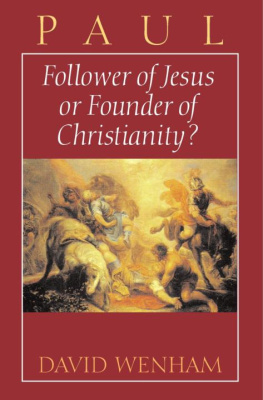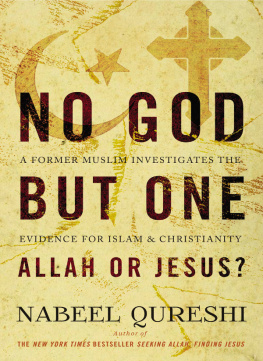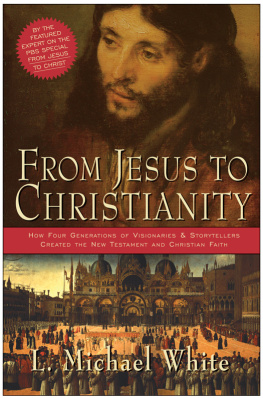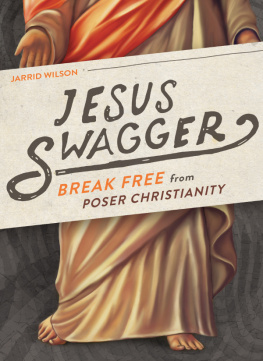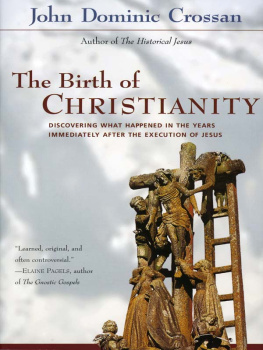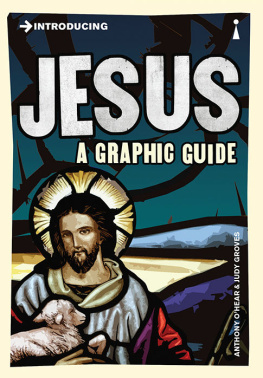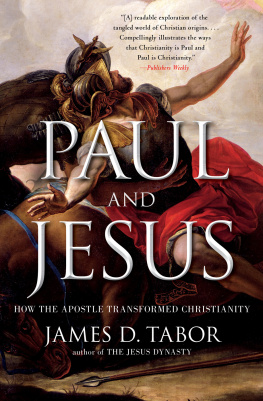Erin Vearncombe - After Jesus Before Christianity
Here you can read online Erin Vearncombe - After Jesus Before Christianity full text of the book (entire story) in english for free. Download pdf and epub, get meaning, cover and reviews about this ebook. year: 2021, publisher: HarperOne, genre: Religion. Description of the work, (preface) as well as reviews are available. Best literature library LitArk.com created for fans of good reading and offers a wide selection of genres:
Romance novel
Science fiction
Adventure
Detective
Science
History
Home and family
Prose
Art
Politics
Computer
Non-fiction
Religion
Business
Children
Humor
Choose a favorite category and find really read worthwhile books. Enjoy immersion in the world of imagination, feel the emotions of the characters or learn something new for yourself, make an fascinating discovery.
- Book:After Jesus Before Christianity
- Author:
- Publisher:HarperOne
- Genre:
- Year:2021
- Rating:4 / 5
- Favourites:Add to favourites
- Your mark:
- 80
- 1
- 2
- 3
- 4
- 5
After Jesus Before Christianity: summary, description and annotation
We offer to read an annotation, description, summary or preface (depends on what the author of the book "After Jesus Before Christianity" wrote himself). If you haven't found the necessary information about the book — write in the comments, we will try to find it.
After Jesus Before Christianity — read online for free the complete book (whole text) full work
Below is the text of the book, divided by pages. System saving the place of the last page read, allows you to conveniently read the book "After Jesus Before Christianity" online for free, without having to search again every time where you left off. Put a bookmark, and you can go to the page where you finished reading at any time.
Font size:
Interval:
Bookmark:
AFTER JESUS BEFORE CHRISTIANITY . Copyright 2021 by Westar Institute. All rights reserved under International and Pan-American Copyright Conventions. By payment of the required fees, you have been granted the nonexclusive, nontransferable right to access and read the text of this e-book on-screen. No part of this text may be reproduced, transmitted, downloaded, decompiled, reverse-engineered, or stored in or introduced into any information storage and retrieval system, in any form or by any means, whether electronic or mechanical, now known or hereafter invented, without the express written permission of HarperCollins e-books.
Cover design: Studio Gearbox
Cover images: Getty Images and courtesy of the authors
FIRST EDITION
Library of Congress Cataloging-in-Publication Data is available upon request.
Digital Edition NOVEMBER 2021 ISBN: 978-0-06-306217-7
Version 09242021
Print ISBN: 978-0-06-306215-3
Many are the things that mortals,
seeing, can understand.
Without seeing, no one can tell
what the future is likely
to bring to pass.
SOPHOCLES, AJAX, LINES 14181420
This book is dedicated to the Jesus peoples and members of Anointed communities, wisdom schools, and Savior clubs in the first two centuries, whose voices we so long to hear and understand.
You are about to read a book that possesses the potential to rewrite history, namely, the long-held master narrative of how Christianity came to be.
How do we perceive the founding story of Christianity? What really transpired during the first two hundred years after Jesus? Did early churches exist in the immediate aftermath of Jesus? Were there powerful, unseen dynamics behind the emergence of Jesus groups? Did these communities share a cohesive set of beliefs? What about womenwere they imperfect men in need of fixing? Or boundary violators who sometimes led the way? Were Jesus people being martyred left and right by the Romans? Were there religious info-wars between the orthodox and the heretics? Did Christianity as we know it even exist in those pivotal two centuries?
The questions are formidable, tantalizing, disturbing, audacious, timely, and ultimately filled with hope. If I ask anything of you as you read the findings in these pages, it would be to not only allow the questions, but to love them.
* * *
On Easter Sunday, at the age of nine, I walked down the aisle of the First Baptist Church in my tiny hometown in Georgia and made what was known as a profession of faith. It was 1957, a long while ago, but that experience, along with an event immediately preceding it, occupies a prime piece of real estate in my memory. I had dressed in a lavender dress, white gloves, Mary Jane shoes, and the pice de la rsistance, a matching lavender parasol. There was something about that last accoutrement that filled me with both joy and spunk. Earlier that morning, sitting in Sunday School class, seized by a combination of boldness, mutiny, and unfettered curiosity, I had opened the parasol, revealing its magnificent purple canopy. The act was met by a sharp reproach from the teacher and my beloved parasols swift confiscation.
Shortly after this small kerfuffle, I strode down the aisle without my contraband where I was met by the minister, who asked a series of questions: Do you believe Jesus died for your sins? Do you believe God raised Jesus from the dead? Will you repent and accept Jesus as your Lord and Savior?
So began my religious lifein traditional, religious orthodoxy, in the beliefs and doctrines of the Baptist church of the 1950s in the American South. Yet hovering over it all was the lavender parasol, that small, prophetic moment of testing boundaries.
Throughout my adolescence and twenties, the orthodox master narrative that had been passed on to me that Easter Sunday became my lens for interpreting life. As a writer of stories, however, Im aware that whether were writing them, telling them, living them, or using them as a paradigmatic way to see and understand the world, a story always has a moment when the plot thickens. In other words, something happens. Otherwise, its not much of a story. On the cusp of my thirtieth birthday, while reading a thin book titled Letters to a Young Poet by Rainer Maria Rilke, something happened. I came upon this profundity: Try to love the questions.
The words initiated me into the freedom of unknowing. I began to probe the givens and fixed concepts that had shaped me. I began to love questions more than answers. I recovered the spirit of challenging sacrosanct boundaries. You could say, I got my parasol back.
* * *
Whether your relationship to the Christian religion is deep, shallow, past, present, or nil, the way you read this book matters. If you do so while loving the questions, the book will plunge you into the freedom of unknowing. This rare state of being is what allowed the Queen in Alices Adventures in Wonderland to believe six impossible things before breakfast. In our case, it will allow us to acknowledge a multitude of conclusions previously thought to be impossible because theyve existed outside the traditional historical construct.
As our esteemed authors point out, the master narrative of the two hundred years after Jesus was conceptualized by looking back and molding events to fit the beliefs of an already established paradigm. In his book Serendipities: Language and Lunacy, Umberto Eco recounts how the thirteenth-century Italian explorer Marco Polo searched for unicorns and doggedly claimed to have found them. At the time, European culture accepted the existence of these mythical creatures. What he actually discovered were Asian rhinos, animals for which he had no image or language. Marco Polo fell victim to what Eco refers to as background books. These invisible books, Eco writes, are our preconceived notions of the world, derived from our cultural tradition. In a very curious sense we travel knowing in advance what we are on the verge of discovering, because past reading has told us what we are supposed to discover.
We see things not as they are, but as we are, the saying goes. It turns out, seeing is not believing so much as believing is seeing.
Its questions that will save us.
* * *
When I completed this book, I felt as if Id uncovered an invaluable mosaic that had been lost in antiquity. Each chapter is a tile, a tessera dropped into placeone by oneuntil a new design of history comes into view. The picture reveals an era of immense social crisis transpiring across the Mediterranean world, giving rise to disparate Jesus groups, an array of communities from wisdom schools to supper clubs. Displaced, oppressed, and terrorized, the people in these communities are in search of identity and belonging, of ways to resist violence, torture, and authoritarianism. They capsize the rules of gender. They create diverse documentshidden transcripts, stories, poems, and songs that disguise their rebellion, offer them strategies and catharsis, inspire courage, and soothe their heartache. One such text, discovered in 1945 among the Nag Hammadi manuscripts, known as The Thunder: Perfect Mind, is an elegy Ive read and reread for more than twenty years. Coming upon it within these pages was like seeing it in a thrilling new way. I am she who exists in all fears and trembling boldness, the divine voice in the poem proclaims. I imagine Jesus people reading those words almost two millennia ago and finding bravery in them, just as I have.
The world today wrestles with its own social crisesterrorism; authoritarianism; displacement; racial, gender, and ethnic oppression; climate change; global pandemics; the breakdown of religious structures. I often feel that contemporary Christianity is at a turning point and a new Christian paradigm is struggling to be born. The reimagined history set forth here opens new possibilities. It makes room for spiritual flexibility.
Font size:
Interval:
Bookmark:
Similar books «After Jesus Before Christianity»
Look at similar books to After Jesus Before Christianity. We have selected literature similar in name and meaning in the hope of providing readers with more options to find new, interesting, not yet read works.
Discussion, reviews of the book After Jesus Before Christianity and just readers' own opinions. Leave your comments, write what you think about the work, its meaning or the main characters. Specify what exactly you liked and what you didn't like, and why you think so.

